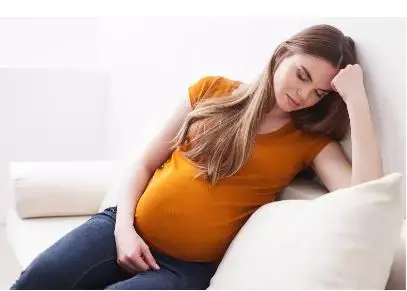- Home
- Medical news & Guidelines
- Anesthesiology
- Cardiology and CTVS
- Critical Care
- Dentistry
- Dermatology
- Diabetes and Endocrinology
- ENT
- Gastroenterology
- Medicine
- Nephrology
- Neurology
- Obstretics-Gynaecology
- Oncology
- Ophthalmology
- Orthopaedics
- Pediatrics-Neonatology
- Psychiatry
- Pulmonology
- Radiology
- Surgery
- Urology
- Laboratory Medicine
- Diet
- Nursing
- Paramedical
- Physiotherapy
- Health news
- Fact Check
- Bone Health Fact Check
- Brain Health Fact Check
- Cancer Related Fact Check
- Child Care Fact Check
- Dental and oral health fact check
- Diabetes and metabolic health fact check
- Diet and Nutrition Fact Check
- Eye and ENT Care Fact Check
- Fitness fact check
- Gut health fact check
- Heart health fact check
- Kidney health fact check
- Medical education fact check
- Men's health fact check
- Respiratory fact check
- Skin and hair care fact check
- Vaccine and Immunization fact check
- Women's health fact check
- AYUSH
- State News
- Andaman and Nicobar Islands
- Andhra Pradesh
- Arunachal Pradesh
- Assam
- Bihar
- Chandigarh
- Chattisgarh
- Dadra and Nagar Haveli
- Daman and Diu
- Delhi
- Goa
- Gujarat
- Haryana
- Himachal Pradesh
- Jammu & Kashmir
- Jharkhand
- Karnataka
- Kerala
- Ladakh
- Lakshadweep
- Madhya Pradesh
- Maharashtra
- Manipur
- Meghalaya
- Mizoram
- Nagaland
- Odisha
- Puducherry
- Punjab
- Rajasthan
- Sikkim
- Tamil Nadu
- Telangana
- Tripura
- Uttar Pradesh
- Uttrakhand
- West Bengal
- Medical Education
- Industry
Contraceptive use may benefit mental health of women with psychiatric disorders: Study

Mental health care for women includes decision support to prepare for major life events, including preconception planning for treatment during pregnancy and the postpartum period.
Proactive management of mental illness, contraception, and pregnancy improves a woman's capacity to function and optimizes her mental and reproductive health,suggests the findings of a recent study published in American Journal Of Psychiatry .
Previous studies highlight the frequency of psychiatric disorders during the reproductive years in women. Psychiatrists are well positioned to support women by encouraging contraception until pregnancy is desired, providing education on the reproductive health effects of psychotropic medications, and discussing the course of mental illness across childbearing.
The main goal in this study, as a team of psychiatrists and obstetrician-gynecologists, is to provide clinicians with information to improve collaboration in the contraceptive care of women with psychiatric disorders.
For the study design, a literature search on contraceptives for women with psychiatric disorders in PsycINFO, PubMed, Embase, and Scopus. Publications were selected if they included, based on the authors' consensus, data supporting evidence-based care important for psychiatrists who treat women desiring contraceptives.
On data analysis, the following facts emerged.
- The majority of women choose combined oral contraceptives.
- Although long-acting reversible contraceptives (implants, intrauterine devices) are associated with low failure rates, favorable safety profiles, rapid return to fertility after removal, and few contraindications, they are chosen by only 14% of women.
- All methods are acceptable for women with depression, although medical comorbidities may dictate a specific type.
- The impact of hormonal contraceptives on the risk for depression is controversial; however, clinical studies and randomized placebo-controlled trials of women with psychiatric disorders have generally reported similar or lower rates of mood symptoms in hormonal contraceptive users compared with nonusers.
- Although interactions between psychotropic drugs and contraceptives are rare, clozapine, anticonvulsants, and St. John's Wort are exceptions.
Observing the results, the authors noted, "We assert that basic contraceptive knowledge is a critical component of our care of female patients and that residency and continuing education programs must include this important topic".
For full article follow the link: https://doi.org/10.1176/appi.ajp.2020.20020154
Primary source: American Journal Of Psychiatry
Dr Satabdi Saha (BDS, MDS) is a practicing pediatric dentist with a keen interest in new medical researches and updates. She has completed her BDS from North Bengal Dental College ,Darjeeling. Then she went on to secure an ALL INDIA NEET PG rank and completed her MDS from the first dental college in the country – Dr R. Ahmed Dental College and Hospital. She is currently attached to The Marwari Relief Society Hospital as a consultant along with private practice of 2 years. She has published scientific papers in national and international journals. Her strong passion of sharing knowledge with the medical fraternity has motivated her to be a part of Medical Dialogues.
Dr Kamal Kant Kohli-MBBS, DTCD- a chest specialist with more than 30 years of practice and a flair for writing clinical articles, Dr Kamal Kant Kohli joined Medical Dialogues as a Chief Editor of Medical News. Besides writing articles, as an editor, he proofreads and verifies all the medical content published on Medical Dialogues including those coming from journals, studies,medical conferences,guidelines etc. Email: drkohli@medicaldialogues.in. Contact no. 011-43720751


